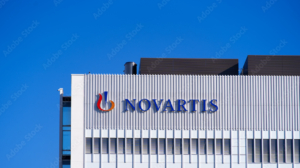Exciting. Innovative. Berlin. A fast-growing ecosystem
Berlin is no longer well-known only for its amazing cultural landscape and clubbing locations. Today, the German capital is one of the top three European tech start-up cities. This is a major attraction for investors, big pharma companies, and high-class researchers from all over the world who come to settle in the HealthCapital region Berlin-Brandenburg. During BIO-Europe in November, it offers the opportunity to dive into a fast-growing life sciences ecosystem.
Did you know that Berlin is one of the world’s most attractive cities when it comes to foundations and spin-outs? It is currently home to more than 500 high-tech start-ups, on a level with other European megacities such as Paris or London. Many companies whether small or larger, new or established appreciate the strengths and potentials of the German capital region and have settled here in recent years, says Carolin Clement, Head of Unit Biotech and Pharma at Berlin Partner for Business and Technology, which helps companies to locate in the region. It is not only for this reason that this year’s BIO-Europe takes place in Berlin. We are happy to be the host for this must-attend event for biotech and pharma executives, Clement says, pointing out the vast opportunities the region offers for potential future collaborations.
Every 20 hours a new digital start-up is founded in Berlin.
But what makes Berlin so special? Quite definitely, its very own expertise in different high-tech sectors. On the one hand, there is a fast-growing IT community, which has seen a 64% growth in revenue since 2010. One in eight employees in the city is already involved in a digital business. On the other hand, Berlin and its greater area has around 240 biotechnology companies with approximately 5,000 employees. With their strong focus on exciting biomedical topics, such as cardiovascular and metabolic diseases, immunotherapy and oncology, stem cell research, 3D printing and tissue engineering, they profit from the regions excellent infrastructure.
Whether it’s the internationally renowned Charité clinic, the newly established Berlin Institute of Health, or the high-class institutes of the Max Planck Society and Helmholtz Association, to name but a few, Berlin is a top address for attracting the best talents in genome and proteome research, regenerative medicine, RNA technologies, gene therapy, glyco-engineering technology and digital health. In the past, this expertise has laid the groundwork for companies such as immunotherapy pioneer MOLOGEN AG. CEO Mariola Söhngen says, The company has resided in Berlin since it was founded as a spin-off from the Free University. We value the excellent clinical and research landscape, and benefit from the network of research institutions and industry experts. More recently established start-ups, such as Captain T-Cell or OMEICOS Therapeutics, which were both spun out by scientists of the Max Delbrück Center in Berlin-Buch, also welcome the innovative spirit found in the German capital. According to Karen Uhlmann, co-founder and Director Legal Corporate & Operations of OMEICOS, The cardiovascular expertise is extremely strong in the region. This is substantially supportive to further develop our drug candidates, but also to find the right manpower for future growth.
"We value the excellent clinical and research landscape." – Mariola Söhngen, CEO MOLOGEN AG
ounded in 2013, the company is focusing on first-in-class small molecules based on omega-3 fatty acid analogs for the treatment of atrial fibrillation. First clinical trials with healthy volunteers started in February 2017. This year, OMEICOS also closed a Series B financing of more than €8m led by Vesalius Biocapital, along with SMS Company Group, KFW Group, VC Fund Technology Berlin and the High-Tech Founder’s Fund. Due to the dense network of private and public seed investors as well as VC financiers, the Berlin area is a well-positioned environment for life science companies, says Uhlmann, emphasizing in particular the supportive role of the local bank Investitionsbank Berlin (IBB) in the early phase of its foundation. Seed investors in Berlin are accompanied by, among others, the SPARK initiative at BIH. This accelerator programme offers BIH-related scientists professional mentoring to start spin-off activities. In addition, the BIH is also strongly focused on building the next generation of digital health experts with the BIH Digital Health Center.
"Our Berlin Healthcare Lab has become the model for our globally connected Healthcare Hubs." – Peter Albiez, Chairman of the Board, Pfizer Germany
In addition to being a hot spot for start-ups and SMEs, Berlin has a venerable tradition of pharma drug development dating back to the 19th century. Today, its proximity to the health care system decision-makers in the German government and other European countries makes it a valuable location for several global players, such as Bayer, Pfizer, Sanofi, Takeda, Berlin-Chemie (as part of the Menarini group), and more than 20 medium-sized companies, offering jobs for a total of 10,000 employees.
For big pharma in particular, Berlin has developed as a place to scout for ground-breaking new technologies. One example is the Berlin Research Lab (BRL) of US company Pfizer, supporting biotech innovation and diversity by bringing together companies and researchers from different areas of expertise. Another Pfizer initiative, the Berlin Healthcare Lab, was started to develop digital healthcare solutions. We are delighted that this lab has become the model for our globally connected Healthcare Hubs, says Peter Albiez, chairman of the board at Pfizer Germany, stressing that their main focus is on cooperating with local start-ups. Others, such as French pharma Sanofi, are convinced that their sales and marketing offices, with more than 1,000 employees within walking distance of the famous Berlin Philharmonic, are in an excellent strategic position to boost distribution and market presence for Sanofi. The business enterprise sector taking root here is simply overwhelming, says Clement Kaiser, CEO of the German subsidary of Sanofi. Japanese pharma company Takeda aims at positioning its production site in Brandenburg as the centre of a global network for the distribution of Takeda’s medicinal products. Since 2014, it has invested around EUR100m in a new production module, scheduled to open at the end of 2017.
The Berlin-Brandenburg area also offers plenty of opportunities for companies to complement their own expertise. Over 40 companies and scientific institutions are locally organized in the Network for Pharma Solutions (Net PhaSol), bringing together a portfolio of services in the field of drug development.NetPhaSol is the perfect platform for us to meet new cooperation partners and to establish new products and services, says Melanie Herse-Näther from InnoRa GmbH, who acts as drug development service provider.
BIO-Europe
When?
November 6-7, 2017
Where?
CityCube, Berlin, Germany
What to expect?
3,600+ attendees; 4,700+ licensing opportunities; 150+ company
presentations
Further information
Carolin Clement, Berlin Partner
for Business and Technology
carolin.clement(at)berlin-partner.de
www.healthcapital.de


 adobe stock photos - Michael Derrer Fuchs
adobe stock photos - Michael Derrer Fuchs  Picture from Ferdinand Stöhr on Unsplash
Picture from Ferdinand Stöhr on Unsplash  Photo from Giulia Bertelli on Unsplash
Photo from Giulia Bertelli on Unsplash